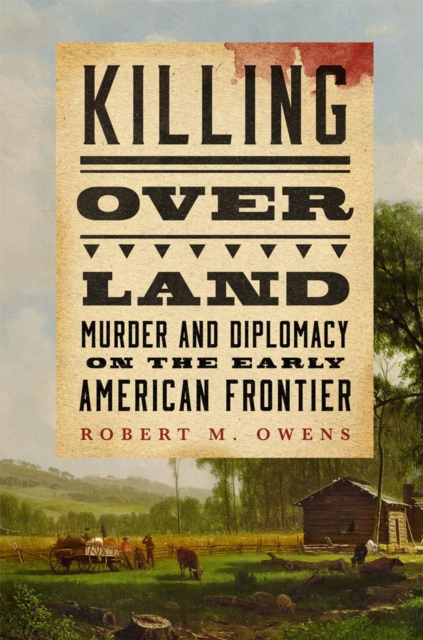In early America, interracial homicide--whites killing Native Americans, Native Americans killing whites--might result in a massive war on the frontier; or, if properly mediated, it might actually facilitate diplomatic relations, at least for a time. In
Killing over Land, Robert M. Owens explores why and how such murders once played a key role in Indian affairs and how this role changed over time.
Though sometimes clearly committed to stoke racial animus and incite war, interracial murder also gave both Native and white leaders an opportunity to improve relations, or at least profit from conflict resolution. In the seventeenth century, most Indigenous people held and used enough leverage to dictate the terms on which such conflicts were resolved; but after the mid-eighteenth century, population and material advantages gave white settlers the upper hand. Owens describes the ways settler colonialism, as practiced by Anglo-Americans, put tremendous pressure on Native peoples, culturally, socially, and politically, forcing them to adapt in the face of violence and overwhelming numbers.
By the early nineteenth century, many Native leaders recognized that, with population and power so heavily skewed against them, it was only practical to negotiate for the best possible terms;
lex talionis justice--blood for blood--proved an unrealistic goal. Consequently, Indigenous and white leaders alike became all too willing to overlook murder if it led to some kind of gain--if, for instance, justice might be traded for financial compensation or land cessions.
Ultimately, what Owens analyzes in
Killing over Land is nothing less than the commodification of human life in return for a sense of order--as defined and accepted, however differently, by both Native and white authorities as the contest for land and resources intensified in the European colonization of North America.











